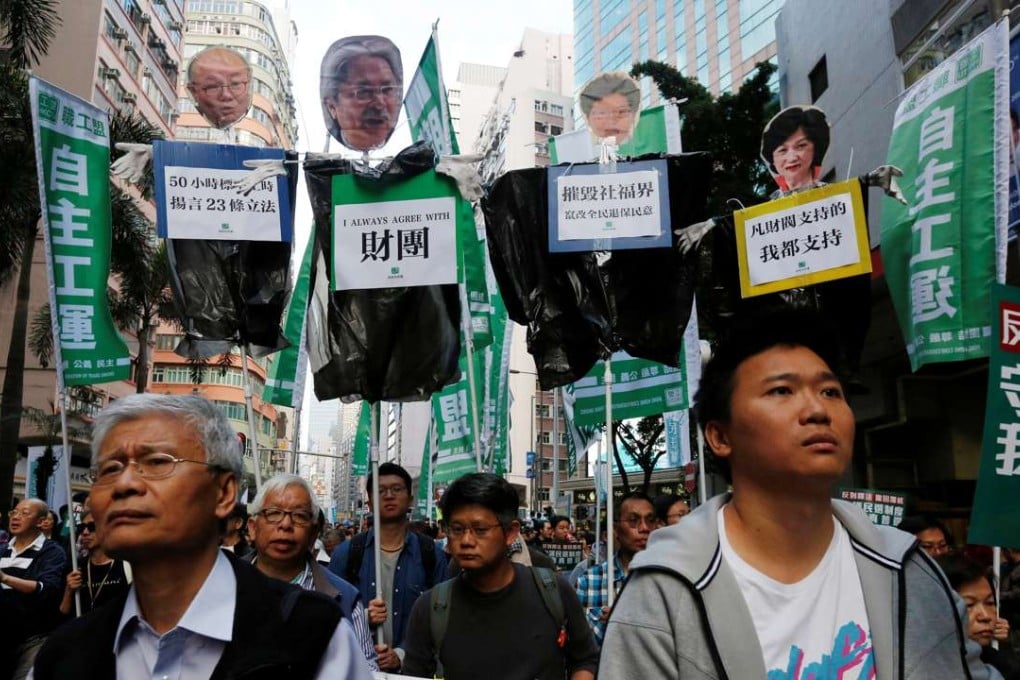Hong Kong’s public coffers offer a golden opportunity for chief executive candidates
Raymond Mak says bulging fiscal reserves offer top-job aspirants the opportunity to present a comprehensive set of public finance principles and policies, to show their commitment to improving livelihoods and restoring social stability

All declared candidates are well aware of the ever-growing demands for public housing, education, health care and retirement protection
All declared candidates are well aware of the ever-growing demands for public housing, education, health care and retirement protection, and have proposed various sets of policies in response.
However, no one seems to have addressed the corresponding public finance issues: how much funding do we need? Where will the money come from? Should the government open up revenue streams? Should it cut expenditure in other policy areas? Should the government continue giving away one-off sweeteners? How should it allocate resources fairly?
Hong Kong has been running successive years of budget surplus since 2004. Our current fiscal reserves level ... is excessive
Without answers to these questions, the chances are that campaign promises will prove to be empty pledges.
Therefore, aside from presenting his or her vision for Hong Kong, the ideal next chief executive should also be able to illustrate and deliver a comprehensive set of public finance principles and policies.

Big business wins again in John Tsang’s budget for Hong Kong
The next government should consider adjusting the fiscal reserves level down to an amount equivalent to 12 months’ expenditure, considered to be sufficient in meeting operating and contingency requirements by the then financial secretary back in 2002, when Hong Kong was recovering from the Asian financial crisis.
